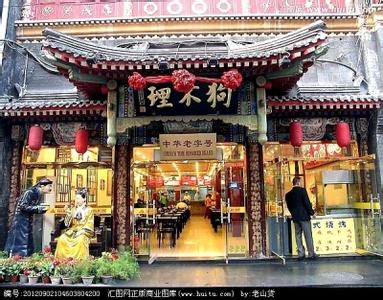GouBuLi coffee selling "time-honored brand" cross-border operation can be popular and popular

GouBuLi is going to sell coffee!
In January 2015, Tianjin GouBuLi Group, a Chinese time-honored brand with a history of more than 150 years, won the permanent right to use Australia's largest coffee chain in China. This means that GouBuLi has become the "master" of this well-known international brand in the Chinese market and a sharp weapon for GouBuLi to expand China's local catering market.
On February 3, Zhang Yansen, member of the CPPCC National Committee and chairman of Tianjin Goubuli Group, told the Finance and Economics National Weekly that running coffee is the need of the diversified development of enterprises, and the profits can be used to feed the development of "time-honored brands."
With regard to the outside world's concern about the risks of cross-border operations, Zhang Yansen said that Gouli does not invest in foreign coffee and does not use the model of Gouli to directly operate coffee. Gloria Coffee operates completely independently in the actual business process in China. But industry insiders are also worried that, as a laggard, it will take time for Gouli to survive in the gap between Starbucks, garage coffee and other domestic and foreign coffee companies.
Overall Arrangement
Zhang Yansen, 56, is slightly fat and has a loud voice. On a study trip abroad many years ago, he discovered a business opportunity for coffee. Zhang Yansen believes that some ordinary foreign coffee brands are hailed as high-end brands at home, mainly because imported coffee beans drive up the cost. This gave him the idea of running coffee.
At the end of 2012, GouBuLi made initial contact with Colorado Coffee International Co., Ltd. Since then, after nearly two years of arduous negotiations, with more than 10 round trips and five interruptions, the intellectual property license agreement was finally signed on Christmas Day 2014, and GouBuLi became the only permanent brand user of Colorado in China.
It is reported that RetailFoodGroup, the parent company of Colorado, has reached a cooperation agreement with Tianjin Senyongtai Catering Co., Ltd., a subsidiary of GouBuLi, to set up a joint venture company in which the Chinese side will hold an 80 per cent stake and the foreign side will hold the remaining 20 per cent. GouBuLi's franchise fee of A $6 million (RMB 30.63 million) has been fully accounted for.
Founded in 1979, Colorado Coffee has become the largest professional coffee retailer in Australia after more than 30 years of development, with more than 1000 stores in 42 countries and regions. In China, Colorado Coffee has also successfully operated more than 10 stores, distributed in Shanghai, Tianjin and other places.
In 2015, Colorado plans to open 20 more chain stores in China. In the future, Colorado's expansion in China will take the form of commercial cooperation and chain operation, and the number of chain stores in China is expected to exceed 200 in the next five years.
"before May this year, we will work with a bakery chain in Australia to further integrate with coffee." Zhang Yansen said they are expected to open a large flagship store in Beijing in the second half of this year.
It is worth mentioning that the future plan of Colorado Coffee is not to take the form of franchise stores, but to work closely with well-known bookstores and banks to promote the expansion of coffee shops through accurate crowd segmentation of the platform.
Challenge
But GouBuLi's coffee journey is not smooth. The competition in the domestic coffee market has long been fierce. International brands such as Starbucks, Costa Coffee, Seattle and El Coffee are racing around, while local brands such as carving time and garage coffee are also strong.
Li Zhiqi, a marketing expert, told Caijing Weekly that there are not many coffee brand stores that really make money in China, especially those that take the high-end route. GouBuLi used to sell steamed buns, but now sells coffee. The industrial chains of the two businesses are very different, so it is very challenging for GouBuLi to operate coffee.
Zhang Yansen doesn't seem to care what the outside world says. He said that whether people like coffee or not, the coffee industry will be one of the fastest growing industries in the future. The labor cost of the coffee shop is small, which is lower than that of the restaurant. At the same time, the coffee shop is not affected by the size of the business area, the rent pressure is relatively small.
According to public data, the annual growth rate of China's coffee consumption market is about 15%, which is much higher than the annual growth rate of 2% of the international market. In 2012, China's coffee consumption was about 70 billion yuan, and in the next five years, China's coffee consumption will exceed 150 billion yuan.
"because we take a high-quality route, positioning is basically in first-and second-tier cities, different from the assembly line operation of some coffee brands, what we pursue is personalized high quality." Zhang Yansen believes that Colorado Coffee will manually produce "your favorite coffee" according to the different needs and preferences of consumers.
The integration of Chinese and Western cultures is also a major feature of Gaoleya Coffee. In Zhang Yansen's view, they should imperceptibly integrate Chinese culture into coffee culture. For example, the coffee shop, as the third space, to provide consumers with places for consumption, it is necessary to integrate into Chinese culture and build it into a more warm and distinctive coffee shop with Chinese elements.
Feng Enyuan, executive vice president and secretary general of the China Cuisine Association, told the Financial State Weekly that GouBuLi, as a large enterprise group, choosing a new business format is also a bold move. An enterprise can have a variety of business formats. Steamed buns and coffee business are not contradictory, because the two sides operate independently, everything depends on the needs of the market.
Of course, the coffee strategy is only part of Zhang Yansen's diversification. In 2014, against the background of the new normal of slowing overall growth in the catering industry, GouBuLi opened four new stores, and four new stores will open in 2015. In addition, Zhang Yansen also plans to expand the Singapore and US markets.
More imaginative is that in 2015, GouBuLi will carry out major cooperation with European and American food industry giants to jointly develop domestic and foreign markets dominated by quick-frozen food. At present, the two sides have completed two rounds of business negotiations and reached a preliminary intention of cooperation, and the specific cooperation plan is expected to be submitted to the boards of directors of both sides for discussion and approval by the end of March this year.
"with the continuous improvement of China's international status, more and more enterprises like GouBuLi will go out to invest and bring in cooperation. It is very important for GouBuLi to sell good steamed buns, and it is even more important to be able to keep pace with the times and be strong for a long time." Zhang Yansen said.
Source: finance and Economics National Weekly
Important Notice :
前街咖啡 FrontStreet Coffee has moved to new addredd:
FrontStreet Coffee Address: 315,Donghua East Road,GuangZhou
Tel:020 38364473
- Prev

Coffee basic knowledge 17 pieces of common sense about coffee
If you love coffee, you must know its charm very well. The following brings you more common sense about coffee, which I believe will make your love for coffee deeper. 1. The first thing to do when you get up is not to drink coffee. Your body secretes a substance called cortisol, which keeps your brain awake and your body energized. The content of cortisol in human body
- Next

Cherry meatballs open a themed coffee shop to celebrate its 25th anniversary
Fuji TV, which has been broadcasting the TV animation of "Cherry Meatballs", celebrated its 25th anniversary in January, according to Japanese media reports. Starting from March 21, they opened a cherry meatball coffee shop on the first floor of the Fuji TV headquarters in Tokyo. They planned to operate for a year without any rest days. Before you know it, "Cherry is small."
Related
- What brand of black coffee is the most authentic and delicious? what are the characteristics of the flavor of the authentic Rose Summer Black Coffee?
- Introduction to the principle and characteristics of the correct use of mocha pot A detailed course of mocha pot brewing coffee is described in five steps.
- Which is better, decaf or regular coffee? how is decaf made?
- How much is a bag of four cat coffee?
- How about four Cat Coffee or Nestle Coffee? why is it a cheap scam?
- Which is better, Yunnan four Cats Coffee or Nestle Coffee? How about cat coffee? is it a fake scam? why is it so cheap?
- How about Cat Coffee? what grade is a hoax? which instant coffee tastes better, four Cat Coffee, Nestle Coffee or G7 coffee?
- Process flow chart of coffee making-Starbucks coffee making process what coffee tastes good at Starbucks
- The top ten best coffee beans in the world Rose summer coffee or Tanzanian coffee tastes good
- Yunnan four cat coffee is good to drink?_four cat coffee is a big brand? four cat blue mountain coffee is fake?

